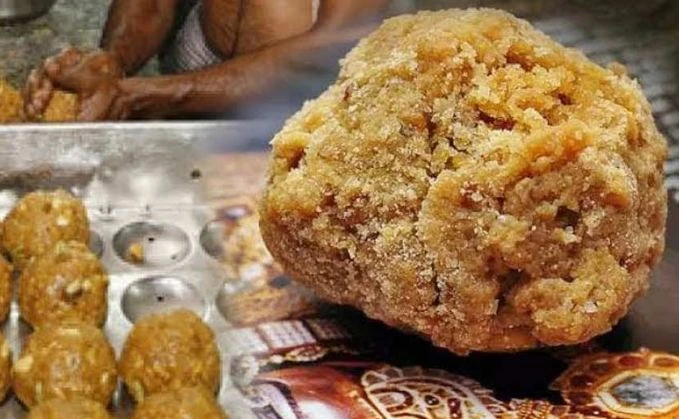Two petitions have been filed in the apex court requesting the establishment of a court-supervised committee to investigate claims of subpar ingredients and animal fat in the ghee utilised at Tirupati Tirumala Temple. The controversy erupted on September 19 when Andhra Pradesh Chief Minister Chandrababu Naidu stated that the ghee used to make Tirupati laddoo prasadam during the previous YSRCP administration included animal fat.
The former chairman of the Tirumala Tirupati Devasthanams (TTD) Board, YV Subba Reddy, filed one petition, while BJP leader Subramanian Swamy filed the other. Reddy sought establishment of an independent committee led by a retired apex court judge to investigate the matter.
Reddy’s petition criticises the lack of clarification from both state and central authorities regarding statements made by Naidu, which raised concerns among devotees, worldwide. Reddy’s plea further alleges that Naidu’s party, TDP, intentionally released documents and fuelled discussions in the media to create unrest among devotees of Lord Venkateswara Swamy.
The petitions emphasise the significance of preserving the Temple’s traditions, as making laddoos as prasadam is a religious custom protected under Article 25 of the Constitution. Both petitions contend that the process should be regulated and overseen by the TTD.
Swamy’s plea seeks a forensic investigation into the lab reports and sources of the ghee, calling for internal checks within the TTD to guarantee the quality of ingredients used in prasadams.
The Ministry of Health issued a notice regarding ghee after one of the four samples failed quality checks, indicating adulteration. In addition, the Temple authority has implemented a sensory evaluation panel to assess food samples based on their aroma, taste and texture.
In addition, Naidu announced the establishment of a specialised investigation team (SIT) to investigate the allegations of adulteration in Tirupati prasadam. “We are forming a Special Investigation Team (SIT) comprising officers of IGP and above posts. The SIT will submit a report to the government, and we will take action based on that report so that such things are not repeated,” Naidu reportedly stated.
Naidu emphasised: “I am taking three angles: first, purification according to traditions; second, ordering an inquiry at the IGP level; and third, ensuring that only those with beliefs will be on the management committee. Finally, we will prepare standard operating procedures for all the temples.”
Swamy’s petition states: “In the light of the severe political rebuttal and also in the light of the aggravated sense of hurt in the minds of the crores of worshippers of Lord Venkateswara, and a propaganda, completely insensitive to the nature of the present fact situation, by leaking to the media houses, the contents of a lab report, the Petitioner prays for a committee under the monitoring of this Court/or under a Retd. Judge of this Hon’ble Court to be formed.”
As per Swamy, the matter should have been handled internally within the TTD. Regrettably, it was politicised and exploited for propaganda purposes, causing profound distress to millions of devotees of Lord Venkateswara. He further asserted that in the event that the quality of supplies provided for the preparation of prasadam/laddoos does not meet the specified standards, the material be returned to the supplier with a request that they adhere to the prescribed norms.
Another petition was also filed in the Supreme Court requesting an investigation into the use of non-vegetarian ingredients in the prasadam. The petitioner, Suresh Khanderao Chavhanke, Editor of Sudarshan News TV, contends that this practice infringes upon the fundamental rights of devotees as enshrined in Articles 25 and 26 of the Constitution, which safeguard religious freedom and the autonomy of religious denominations in managing their affairs.
Additionally, Chavhanke proposed the appointment of a retired Supreme Court judge or High Court chief justice to oversee the management of temples and shrines. This measure aims to ensure transparency and adherence to religious customs, thereby preserving the sanctity of these sacred institutions.
The Tirupati laddoos controversy highlights the complex interplay between faith, politics and food safety in modern India. As devotees raise concerns, the TTD faces the critical task of rebuilding trust and ensuring the purity and safety of the sacred offering. Religious institutions must prioritise transparency in their operations and adhere to the high standards expected by their followers. The resolution of this controversy will not only impact TTD’s reputation, but also the faith of millions who hold the laddoo in deep reverence.
—By Abhilash Kumar Singh and India Legal Bureau


